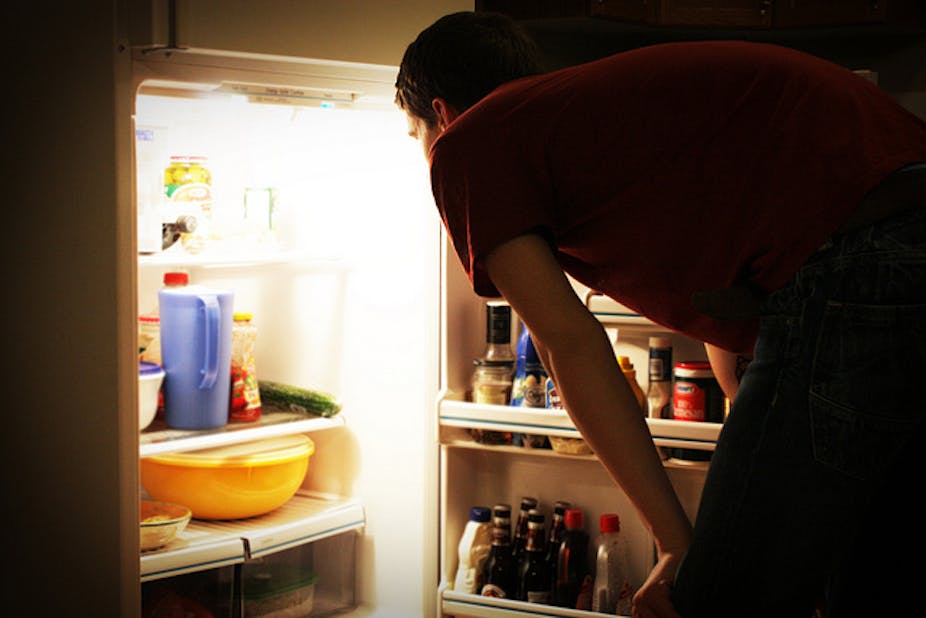If only a cure to world hunger was as easy as dishing out late-night sandwiches to the starving masses, and seeing them gain weight by eating at night.
The reality is that it’s not when you eat, but how much you eat, that explains weight gain.
Not eating at night is common advice given to people to help avoid weight gain. You would be hard pressed, though, to find proof to support this recommendation.
While studies have found that overweight people do eat more food at night time, this also goes hand-in-hand with this group typically eating a greater number of kilojoules per meal and more meals over the course of a day, than people who are not overweight.
Yet further studies have found no link between eating at night and weight gain – no single eating occasion contributes any more or less to excess weight gain than any other period.
Another nail in the coffin of this myth comes from a recent scientific review of the evidence for eating regular meals and controlling weight.
Eating regularly is a feature of most weight management guidelines, but this advice is based more on conventional wisdom than scientific evidence.
The clear conclusion of the scientific review – which analysed a wide range of eating pattens, from just one very large meal a day right up to 17 small snacks a day – was that body weight is not greatly influenced by how often someone eats.
The review also concluded that eating smaller meals, but more often, does not lead to an often-claimed increase in metabolic rate. And changing the frequency of eating only has a mild influence on feelings of hunger.
The amount of food a person eats at night and how regularly they eat really is a matter of personal choice.
So if a current eating pattern works to help shed weight or stop weight gain, there is little reason to change eating frequency purely based on well-meaning advice from health professionals or the latest fad diet.
Of course, going to bed on a full stomach straight after a meal may make for a poor night’s sleep, so this should be avoided if possible.
And as for the popular, but ill-informed advice to not eat carbs after 6pm (or insert any other time of your choosing) – carbohydrates cannot tell the time.
It is excess kilojoules, not maligned carbohydrates that are to blame for weight gain.
If the spare tyre is still inflating, it may be better to look at your whole diet and lifestyle, rather than blaming a late-night turkey sandwich.

